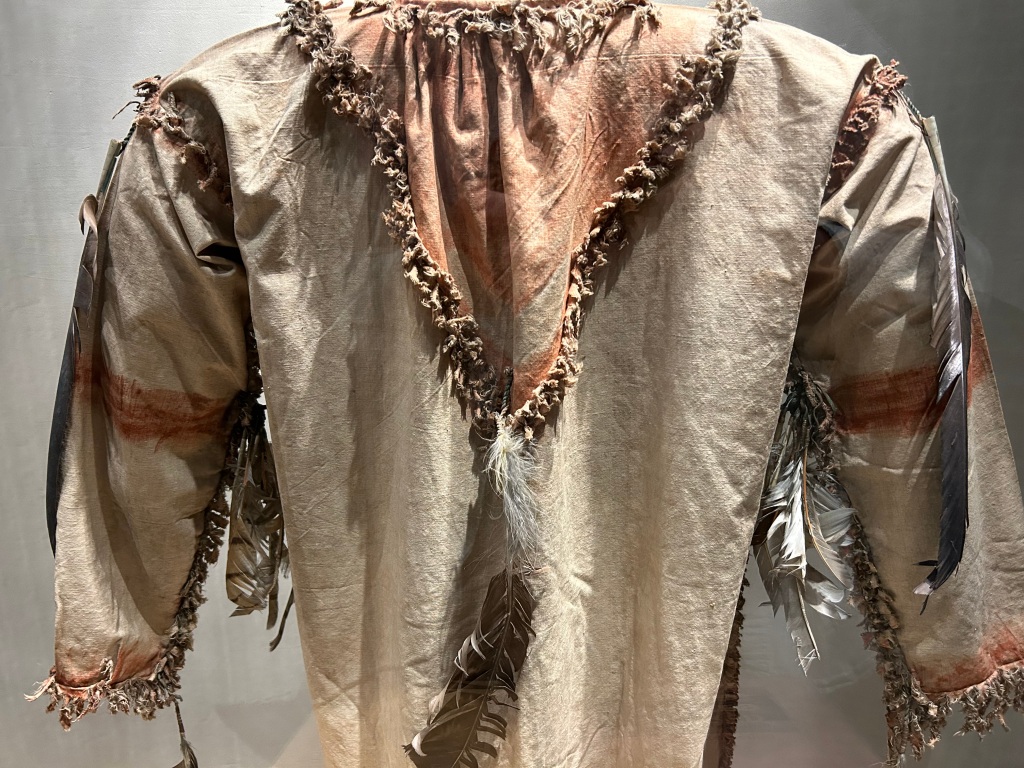
What’s the point of history? Why bother learning all those boring facts and dates? Sure, there are some interesting characters and conflicts, but surely all that old stuff doesn’t have much relevance to today’s problems with AI, mass shootings, war in the Middle East and global warming. The world changes so quickly now, so what’s the point dwelling on the past, when we need to fix future problems?
Glad you asked.
There’s a common misconception that we have some sacred obligation not to judge the past and just to record it as it happened without questioning it. Out of vanity, many people like to study the history of their ancestors, believing that they were virtuous and victorious, in order to be inspired. We’re passive spectators, taking note of past events, and maybe defending the actions and beliefs of our own ancestors, as if we were cheering for our home team. If someone criticizes part of our history, then we say that nobody should judge what they did using hindsight. We read history in order to validate our beliefs that our origins were honorable, and by not questioning anything, we declare ourselves honorable historians.
That is all lazy, narcissistic nonsense that wastes our time, misses the point entirely and prevents us from learning anything useful. We do not study history in some vain attempt to feel better about our selves due to something our ancestors did. We study history to make better choices now, so that we can rightfully feel proud that we are doing our best. The dead can suffer some honest criticism, and they do not enjoy being excuses for our mistakes. Rather than being forgotten, I’m sure they’d prefer being inspiration for our future successes.
The point of studying history is to learn from the past—both admirable actions and atrocious mistakes—in order to make better decisions today. History didn’t have to happen the way it did. As today, people made mistakes, were driven by greed or hate, and acted out of ignorance. They could and often should have made better decisions, but, no matter how flawed they were, we should not simply dismiss and forget them. We must learn from their mistakes. We must constantly apply our highest moral judgements, use our imagination creatively, and draw the most logical conclusions possible, whenever we study history. That way we will learn as much as we can, so that we can apply the lessons of history to our future decisions.
Above is a Ghost Dance Shirt from 1890, decorated with eagle and owl feathers, worn by a Lakota (Sioux) warrior who hoped that it would protect him from bullets. That December 29th, at Wounded Knee, under a flag of truce, the US Cavalry, driven by settlers’ often imaginary racist fears, machine gunned 250 to 300 men women and children to death. The point of history is neither to let such facts sit dryly without emotion or judgement in a book, nor to toss it in the dustbin, nor to argue that the massacre was inevitable, nor to compare whether your ancestors were more mistaken than mine or anyone else’s. The point of history is to learn from past mistakes in order to avoid the doom of repeating them.
620,000 men, roughly 2% of the population died in the line of duty during the Civil War. If we apply no judgement as to why they died, then we learn nothing useful. If we are dishonest or allow ourselves to be confused by old misinformation, then we will draw the wrong conclusions. If we understand the plain truth—that the war was fought over slavery—, study its racist roots, and apply our best judgement, then we can fight racism better and perhaps avoid a future war. Learning to be better must be our main goal, after considering the consequences.
Some lessons can be applied immediately, and others are evergreen. For example, if the safety lessons of Port Chicago had been learned immediately, another similar disaster could have been prevented. The deeper lesson, that bias kills and that diversity can save lives, is one many of us are still struggling to learn. If you can’t learn anything useful from history, you’re not trying hard enough.
Today’s problem of AI replacing skilled labor can be better understood by studying labor history. The most intractable conflicts today can be understood better by studying hatred and injustice from our past. The climate crisis can be better understood by studying evolution, archaeology, and our few remaining intact ecosystems. History is the reservoir of our past experiences and knowledge, and we must draw on that as thoughtfully as possible, always driven by the need to improve ourselves. That’s the point.
Hope you are reading Heather Cox Richardsons blog. She really puts todays olitics in perspective- with the historical facts– really hits home, that some of the shit ahppening today happened 150 years and we didnt learn then. https://heathercoxrichardson.substack.com/
Morning! Hadley turns 30 this weekend. Its freaking me out!
Betsy Lawrence Luxury Property Agent Landvest, Inc 280 Elm Street, Suite 4 So. Dartmouth, MA 02748 508.317.8669 https://www.landvest.com/real-estate-agent/125/betsy-lawrence